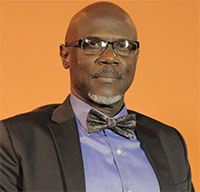…for small developing states: (Part 2)

WE BEGIN the second part of this two-part series by looking at the theory of constructivism and its influence on climate change adaptation finance (CCAF). However, in order to maintain ideational consonance, we repeat the problematic.
THE PROBLEMATIC
Notwithstanding decades of conferences and summits, embedded financial provisions in conventions and pledges, small developing states (SDS) have, as a whole, been unable to access sufficient CCAF to meet their climate change adaptation (CCA) needs. In the result, their nation states and economies have become more susceptible to sea level rises and vulnerabilities, exacerbating their economic, social and environmental development.
The world is socially constructed.
According to Reus- Smit (2009), constructivism is characterised by the constitutive relationship between agents and structures, emphasising the significance of normative and material structures, and how identity contributes to shaping political action by states and international organisations. Hence constructivists argue that systems of shared ideas, values, interests and beliefs possess structural characteristics that influence social and political action (Finnemore and Sikkink; O’Neil).
Consequently, these collective concepts allow the generation of identities through international interaction (Reus-Smit).
Methodologically, constructivists reject the supremacy of a single scientific method used in the generation of knowledge, adopting instead a plurality of approaches and interpretive strategies. Therefore, ontologically, they emphasize the social construction of actors’ identities and the importance of identity in the constitution of interests. Epistemologically, they question positivist approaches to knowledge, criticizing attempts to formulate objective, empirically verifiable truth statements about the natural and social world (Reus-Smit).
What we wish to emphasize at this early juncture is the importance in Guyana articulating an international approach to financing the greening of its economy through generating understandings of international inter subjective behavior, based on a well formulated interest and identity based foreign policy.
INTERPRETATIVE APPROACH TO UNDERSTANDING PHENOMENON
O’Neill (2005) posits that agency depends on the actorness of the agents in the production of definitive results, irrespective of the anticipation of such results. For Adler (1997), constructivism is about occupying the middle ground between rationalist and relativist interpretive approaches to understanding international relations. In his view, constructivism is more about the manner in which the material world shapes and is shaped by actors’ normative and epistemic interpretations.
Viotti and Kauppi, on the other hand, offer four key perspectives of constructivism. First, they argue that constructivists seek to problematize the identities and interests of states, arguing that identities and interests are not givens (see also Wendt), and interests go beyond agents to include international and transnational organizations. Second, constructivists view the international structure as a social whole comprising norms, rules and laws capable of influencing the identities and interests of agents, and even international results. Third, constructivists see the world as a project under construction, getting there, but not yet there. And finally, constructivists dispute the belief that pure objectivity exists, given the subjective nature of the human being.
Given the Guyana green economy context and the nature of international capital flows, identity and norms generated in the international arena do influence the conduct of all parties as a collective during negotiations dealing with areas such a climate change financing. But we must be able to set ourselves apart from the international whole in order to study the identities, interests and norms that may impede our green economy pathway. This should be a nationally driven regional approach!
THE ROLE OF IDENTITY
Finnemore and Sikkink argue that constructivism provides a framework for analysis of social reality and interaction, leading to an understanding of how, over time, social facts change and influence politics. Wendt argued that the formation of collective identities ‘among states could emerge endogenously at the systemic level, [generating] cooperation and transforming systemic anarchy into an international state (Wendt 1998: 384, Moisio, 78-95). Epstein (2004), distancing himself from Wendt’s (1999) essential state paradigm, argued that discourse provides an opportunity for open analysis in studying identity. It also avoids the influence of assumptions about the actors’ selves in studying identity and explaining agency where the concept of the essential self assumes that what works at the individual level also works at the state level.
Schopflin (2001), on the other hand, argued that expansion into the non-material sphere threatens our identity. For him, identities are constructed around a set of moral values, and there is a hierarchy of norms which requires actors to be judgmental in condemning or approving types of behaviour. Consequently, we take refuge in our ‘collective’ identities to resolve our individual fears, without knowing whether collectives — meaning groups of states — will impose their own identities on the weak ones.
Context here is important. At the outset, our role in CARICOM is critical to greening Guyana’s economy, since, as a regional body, CARICOM forges identity, rules and norms upon its own members in order to advance its interests. Guyana’s identity, interests and norms generated in pursuit of its green economy ought to be in such character as to influence that of CARICOM, because together they should be seen and operate as a mutually constitutive whole, chasing a regional green economy pathway.
NORMS AND NORM DIFFUSION
Payne (2001) argued that persuasive communication is critical to norm –building. In practise, however, norm entrepreneurs, using material levers, often create ‘issue’ frames for their benefit and those who control power, in order to promote a specific norm or norms. In somewhat similar terms, Acharya (2004) argues that agents, in diffusing norms, reconstruct foreign norms to fit with their cognitive priors and identities. Congruence, as opposed to persuasive communication, thus becomes the key to norm acceptance.
Mandelbaum (2006), in contrastingly different terms, argued that norm diffusion, such as the invocation of international norms domestically, takes place within the context of state identity, identity crises, and how secure that particular state is about its own identity. This means that norms may matter differentially, depending on the state’s identity and the extent of its resources.
I find that Payne, Acharya and Mandelbaum underscore the importance of regional support for Guyana’s green economy pathway so as to buffer the tendencies of the power approach to norm formation that benefits only the powerful. In particular, deconstructing international norms and domesticating them into acceptance within small states such as Guyana suffer from what developed states call ‘capacity deficit’. But is it really capacity deficit on the part of states such as Guyana? Or is it not a norm diffusion that forces the developed state’s identity upon a small state? Therefore, I would contend that a middle ground for norm diffusion should be established which certifies that the norm and identity have been deconstructed in such a manner that it meets the capacities of states such as Guyana a la CARICOM.
Krook and True (2010) posit that diffusion of international norms affects policy and political behaviour. They view norms as dynamic processes of adoption and implementation, and they hold that a discursive approach is best suited for theorizing and analysing life cycles of international norms. Bjorkdahl (2002), on the other hand, argued that norms are a useful and lasting tool in analysing international relations, because states rely more on norms, ideas and values as opposed to the traditional ‘think’ about distribution of power.
In the result, this mutual constitutive relationship between norms and interests serves to provide states with opportunities to pursue their preferences. However, Perkins and Neumayer (2007) found that compliance with international obligations occurs through the legitimization of norms internally with local institutionalized acceptance. In this regard, they argue that civil society plays a key role in entrenching, mustering and sanctioning normative obligations at the domestic level.
As Guyana advances its green economy pathway and its considerations for CCAF on its journey towards a green state, international norm formation and diffusion, international identity formation, and international interest formation will have various impacts on the country’s green pathway, since the green economy concept comprises an international norm, an international interest, and an international identity that were socially constructed by the powerful for the powerful and the not-so-powerful.
Therefore, mutually constitutive understandings on greening at the CARICOM level will redound to Guyana’s benefit. As such, acquiring CCAF for states such as Guyana will be influenced by international conduct of the powerful and the nature of a mutually constitutive response driven by Guyana and CARICOM.
In the next articles, I shall look at some specific norm and identity formation within the Guyana green economy context, and some challenges associated with their diffusion and how they may affect access to CCAF.
Mr Gary A. R. Best is a retired Rear Admiral and former Chief of Staff of the Guyana Defence Force. He is an attorney-at-law and is the Presidential Advisor on the Environment. He is a PhD candidate at the University of the West Indies. He holds a BSc in Nautical Science (Brazil) and Masters’ degrees from the University of the West Indies and the University of London. He is also an alumnus of the National Defence University and Harvard Kennedy School. His research areas include climate change governance, climate change finance, international relations and environmental law. Comments can be sent to towardsagoodlife@gmail.com



.jpg)









